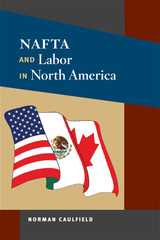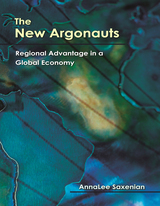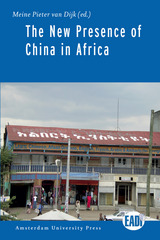7 start with N start with N

As companies increasingly look to the global market for capital, cheaper commodities and labor, and lower production costs, the impact on Mexican and American workers and labor unions is significant. National boundaries and the laws of governments that regulate social relations between laborers and management are less relevant in the era of globalization, rendering ineffective the traditional union strategies of pressuring the state for reform.
Focusing especially on the effects of the North American Free Trade Agreement and the North American Agreement on Labor Cooperation (the first international labor agreement linked to an international trade agreement), Norman Caulfield notes the waning political influence of trade unions and their disunity and divergence on crucial issues such as labor migration and workers' rights. Comparing the labor movement's fortunes in the 1970s with its current weakened condition, Caulfield notes the parallel decline in the United States' hegemonic influence in an increasingly globalized economy. As a result, organized labor has been transformed from organizations that once pressured management and the state for worker concessions to organizations that now request that workers concede wages, pensions, and health benefits to remain competitive in the global marketplace.

Like the Greeks who sailed with Jason in search of the Golden Fleece, the new Argonauts--foreign-born, technically skilled entrepreneurs who travel back and forth between Silicon Valley and their home countries--seek their fortune in distant lands by launching companies far from established centers of skill and technology. Their story illuminates profound transformations in the global economy.
Economic geographer AnnaLee Saxenian has followed this transformation, exploring one of its great paradoxes: how the "brain drain" has become "brain circulation," a powerful economic force for development of formerly peripheral regions. The new Argonauts--armed with Silicon Valley experience and relationships and the ability to operate in two countries simultaneously--quickly identify market opportunities, locate foreign partners, and manage cross-border business operations.
The New Argonauts extends Saxenian's pioneering research into the dynamics of competition in Silicon Valley. The book brings a fresh perspective to the way that technology entrepreneurs build regional advantage in order to compete in global markets. Scholars, policymakers, and business leaders will benefit from Saxenian's firsthand research into the investors and entrepreneurs who return home to start new companies while remaining tied to powerful economic and professional communities in the United States.
For Americans accustomed to unchallenged economic domination, the fast-growing capabilities of China and India may seem threatening. But as Saxenian convincingly displays in this pathbreaking book, the Argonauts have made America richer, not poorer.

After the collapse of communism in the Soviet Union and eastern Europe, more than a dozen countries undertook aggressive privatization programs. Proponents of economic reform championed such large-scale efforts as the fastest, most reliable way to make the transition from a state-run to a capitalist economy.
The idea was widely embraced, and in the span of a few years, policymakers across the region repeatedly chose an approach that distributed vast amounts of state property to the private sector essentially for free-despite the absence of any historical precedent for such a radical concept. But privatization was not a panacea. It has, instead, become increasingly synonymous with collusion, corruption, and material deprivation.
Why was privatization so popular in the first place, and what went wrong? In answering this question, Hillary Appel breaks with mainstream empirical studies of postcommunist privatization.
By analyzing the design and development of programs in Russia, the Czech Republic, and across eastern Europe, Appel demonstrates how the transformation of property rights in these countries was first and foremost an ideologically driven process. Looking beyond simple economic calculations or pressure from the international community, she argues that privatization was part and parcel of the foundation of the postcommunist state.
A New Capitalist Order reveals that privatization was designed and implemented by pro-market reformers not only to distribute gains and losses to powerful supporters, but also to advance a decidedly Western, liberal vision of the new postcommunist state. Moreover, specific ideologies-such as anticommunism, liberalism, or nationalism, to name but a few-profoundly influenced the legitimacy, the power, and even the material preferences of key economic actors and groups within the privatization process.

With expert knowledge and a wry sense of humor, Aliber demystifies international finance by breaking through the jargon barrier and presenting technical issues in a clear and concise manner. Aliber takes the reader on a tour of a multiplicity of international finance issues, included fixed and floating exchange rates, devaluations, money markets, monetary policy, and the concepts that lie behind the esoteric language of financial economists.
This sixth edition tracks the changes that have taken place in the world economy since the previous editions by exploring financial globalization, postcommunist transition, European integration, and the Asian economic crisis. It is an indispensable and highly readable guide to the complex and increasingly fragile system through which the world's business is financed.

This volume looks at the changing face of policy advising from the perspective of the author's forty years of work in and for developing countries. Both a personal memoir and an essay on the nature of the development profession, the book will be of particular interest to those just starting their careers as policy advisers.
The main lesson to be learned, says the author, is that "there is no common formula for solving a country's problems. Each society must come up with its own formula, in which economic policy is only one important variable in a complex equation. We missionaries can best help our counterparts carry out this daunting task by teaching more than preaching, and by insisting that they themselves take full responsibility for their recommendations and actions."
Richard D. Mallon is a Fellow Emeritus of the Harvard Institute for International Development. He has provided macroeconomic policy and planning advice in fifteen countries.

China’s economic and political presence in Africa has expanded drastically over the past decade, especially in the sub-Saharan region. Convinced that Western attempts at providing aid to Africa have failed, Chinese officials have sought new forms of aid and invested billions to push further development in Africa. But some in the United States and around the word fear that China’s interest in sub-Saharan Africa could threaten previous efforts to protect human rights and to promote democracy in the region. The New Presence of China in Africa takes on this controversial issue, offering an overview of the Chinese model and evaluating whether it might serve as an example for future Western endeavors.

READERS
Browse our collection.
PUBLISHERS
See BiblioVault's publisher services.
STUDENT SERVICES
Files for college accessibility offices.
UChicago Accessibility Resources
home | accessibility | search | about | contact us
BiblioVault ® 2001 - 2024
The University of Chicago Press









